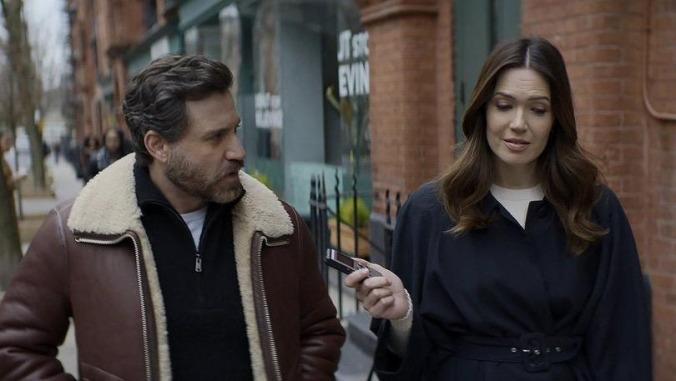Dr. Death season 2 review: A compelling but disjointed true-crime tale
Edgar Ramirez and Mandy Moore help sell the jaw-dropping events of the Peacock show's latest chapter

Within Dr. Death’s second season, which premieres December 21 on Peacock, are two different TV dramas. One is a shocking and tragic case exposing the real-life crimes of Dr. Paolo Macchiarini (Edgar Ramirez). The other is a compelling but slow-moving saga about his personal life, mostly focused on his romantic relationship with journalist Benita Alexander (Mandy Moore). For the most part, the dueling aspects are each gripping in their own right, but they fail to unify in a way that makes the eight episodes a wholly satisfying watch.
Dr. Death’s first season featured a true-crime tale pulled from the Dr. Death podcast that was jarring (and, yes, underrated) as it untangled the evil web of Dr. Christopher Duntsch (Joshua Jackson). This new round, also based on the podcast, is equally scary whenever it dwells on Paolo’s criminal activities and their heartbreaking fallout. It’s both terrifying and emotional to witness his cold-hearted experiments on humans. His vulnerable patients become guinea pigs for him to implant “groundbreaking” biosynthetic tracheas. Spoiler alert: They’re killing machines. Yet, he keeps going for years, using his charm to manipulate those around him. Dr. Death helps lift the fog on his vile scam but fails to get to the heart of why he might’ve done it.
The writing is heavily concerned with how a handsome Italian thoracic surgeon famously dubbed the Miracle Man keeps attracting patients from across the globe. His work also caught the eye of former NBC news producer Benita, who falls for Macchiarini’s maneuvers while filming a segment on him, journalistic integrity about sleeping with a source be damned. Backed by Sweden’s prestigious Karolinska Institute, Paolo’s fame invites the trust of more people, who then die after he operates on them. The real story is gruesome and sad, and Dr. Death manages to capture those sentiments, especially in scenes set in the hospital. (Episode five, in particular, is a crusher.)
But the show doesn’t try to understand or elaborate on Paolo’s possible motivations, means, or backstory. It’s like watching a reenactment—a vivid one, no doubt—that hasn’t been fleshed out beyond the well-known facts. There are mere hints of his ego, god complex, and drive for wealth. The show also lacks curiosity, causing a story that should be full of urgency to sometimes fall flat. There’s even a little nod to this as Benita says in the finale, “I don’t think we’re ever going to know [why he did it] and we have to be okay with that.” Do we, though? Or could Dr. Death have done more to build on Paolo’s life and the lives of those he impacted? It doesn’t help that episodes follow a haphazard timeline—cities and years keep changing within an installment without sufficient narrative explanations to help fill in the gaps.








































